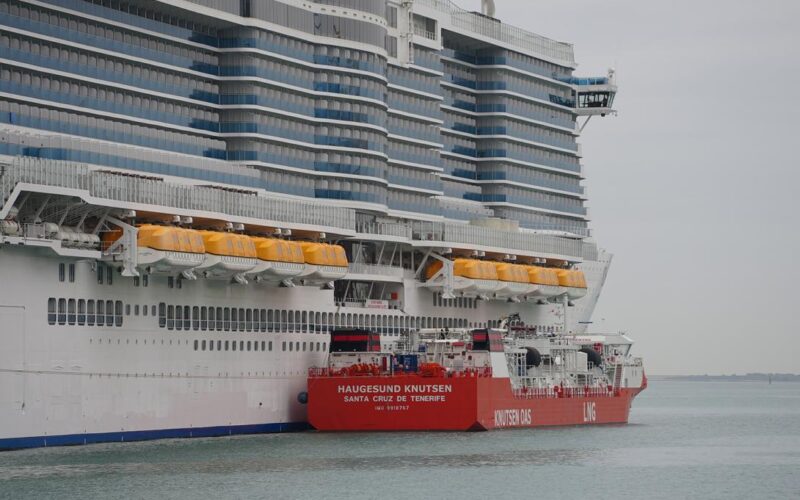The Port of Barcelona has performed a total of 199 liquefied natural gas (LNG) bunkering operations to ships for a total of 143,000 cubic metres (m3) in December 2023.
This is twice that of the last reference year (2021) when it supplied 65,000 m3 of LNG.
After continued growth in LNG bunkering to ships since 2017, the increase in prices caused by the war in Ukraine substantially reduced the use of this fuel in 2022.
The normalisation of prices, and the commissioning of a bunkering barge based in Barcelona called the Haugesund Knutsen, has significantly increased LNG bunkering operations, particularly ship-to-ship operations, which tripled in comparison to 2021.
This increase has meant that the percentage of LNG bunkered to ships with respect to total fuels (mainly fuel oil and diesel fuel) at the Port of Barcelona rose from 0.2 per cent in 2021 to 5.8 per cent last year.
READ: MOL provides FSRU for LNG import terminal in Gdańsk
The 143,000 m3 of LNG supplied to ships during the past year places Barcelona among the leading ports in Europe in the use of this fuel, according to the port.
In February 2023, the commissioning of the 5,000 m3 capacity Haugesund Knutsen by Knutsen Scale Gas reportedly boosted bunkering services for vessels at the port. The presence of a bunkering barge has increased operational flexibility and lowered service costs, with the port reporting a supply of 127,500 m3 of LNG and 66 bunkering operations for cruise ships in 2023, up from 18 operations in 2021 and 14 in 2022.
As prices stabilised, Baleària resumed supplying its ships in Barcelona using tankers from ESK, conducting 133 operations and providing 15,500 m3 of LNG in 2023. Additionally, the first LNG bunkering operation on a cargo ship, specifically a vehicle carrier, occurred at the end of 2023.
READ: Seaspan launches LNG bunkering vessels
Of the 8,783 port calls of ships arriving at the Port of Barcelona in 2023, 618 vessels were powered by LNG (7 per cent), twice as many as in 2022. These 618 LNG calls have spelt a reduction of approximately 400 tonnes of nitrogen oxides (NOX), which represents a 10 per cent reduction in NOX emissions out of the total number of calls in 2023.
LNG-powered vessels that stopped at port over the past year produced 92.6 per cent fewer NOX emissions than if they had been running on diesel fuel.
In November 2023, the Port of Barcelona and Novarium, the Quebec-based innovation hub dedicated to the blue economy, signed a collaboration agreement.








